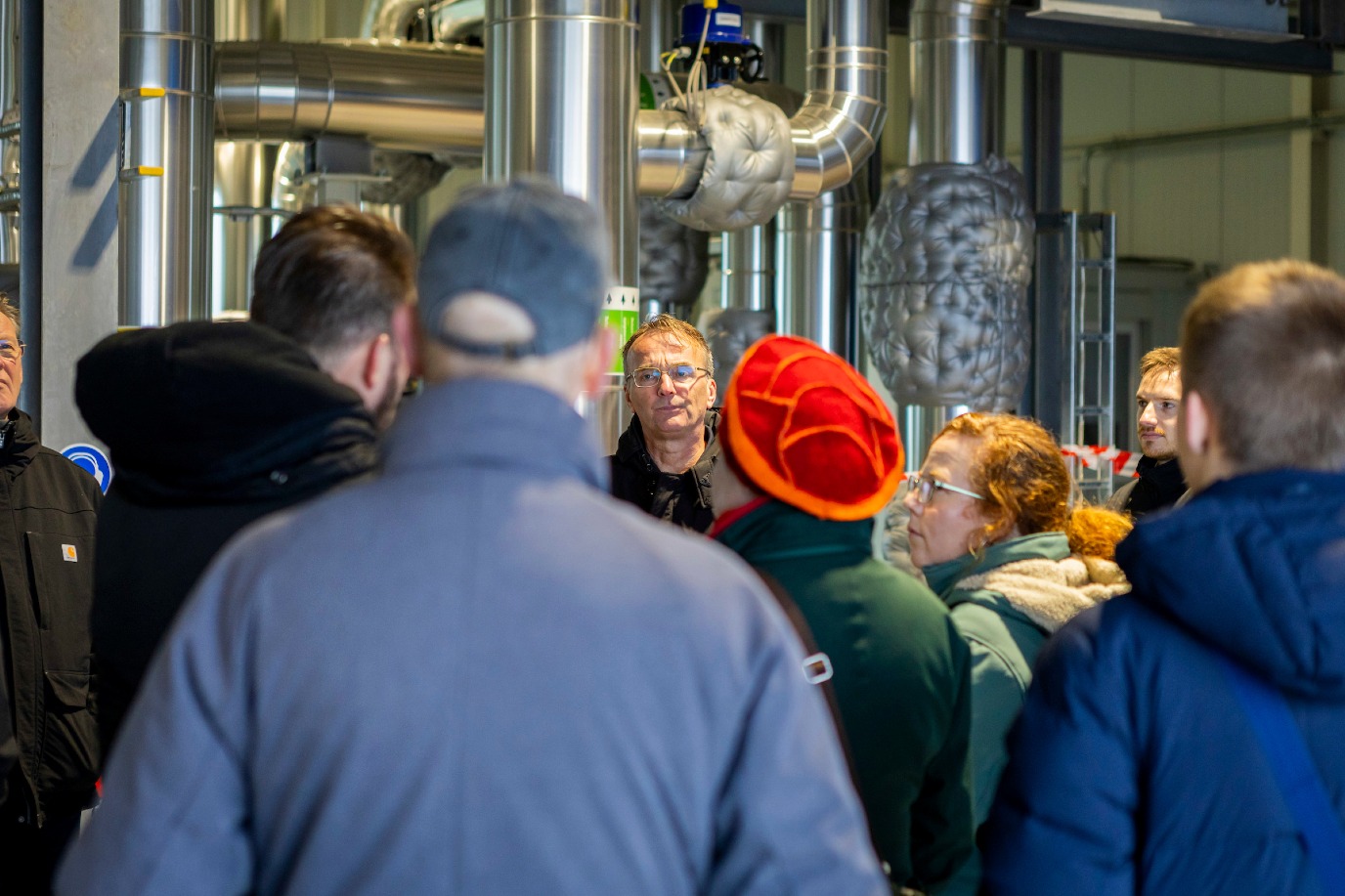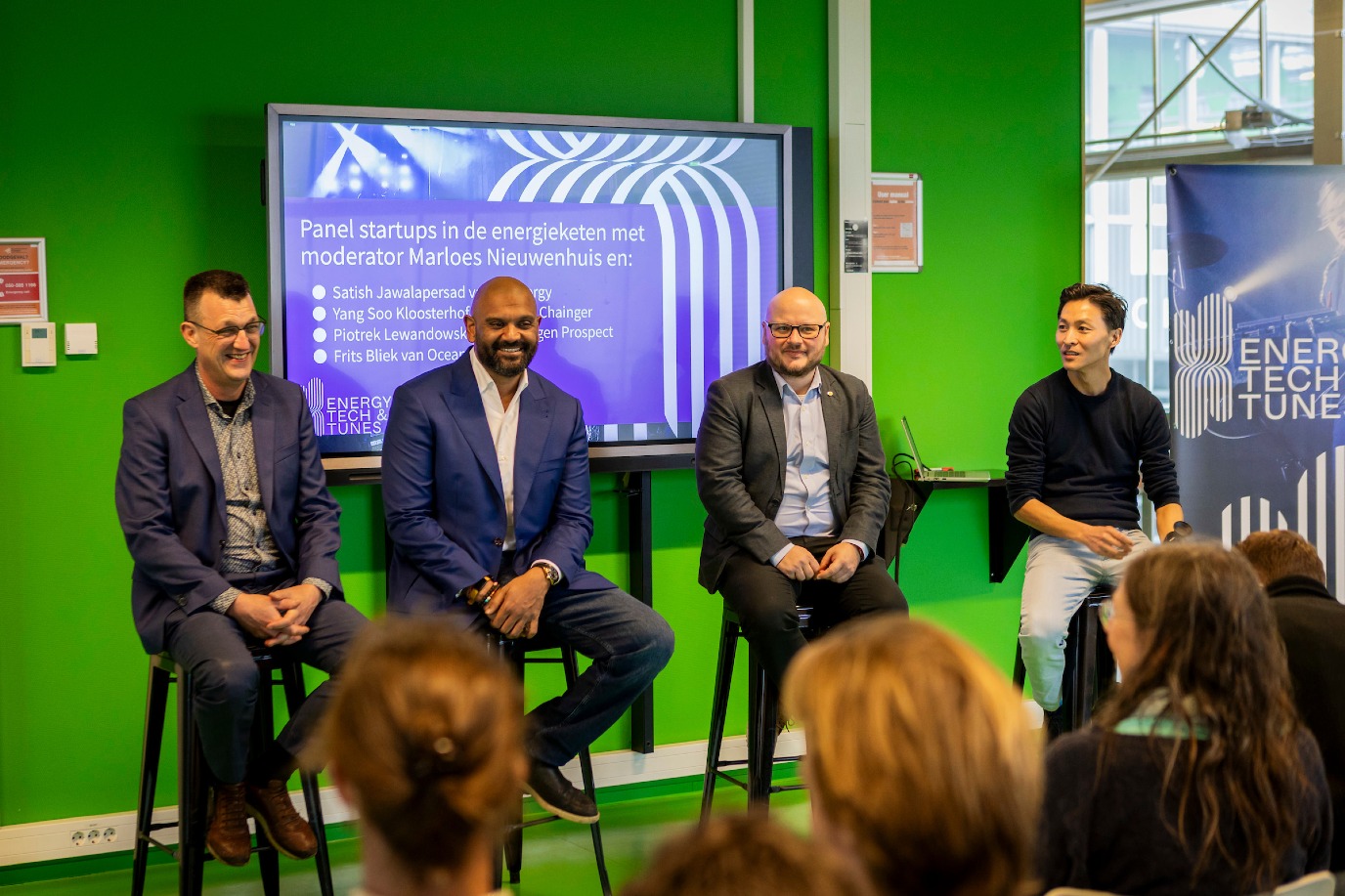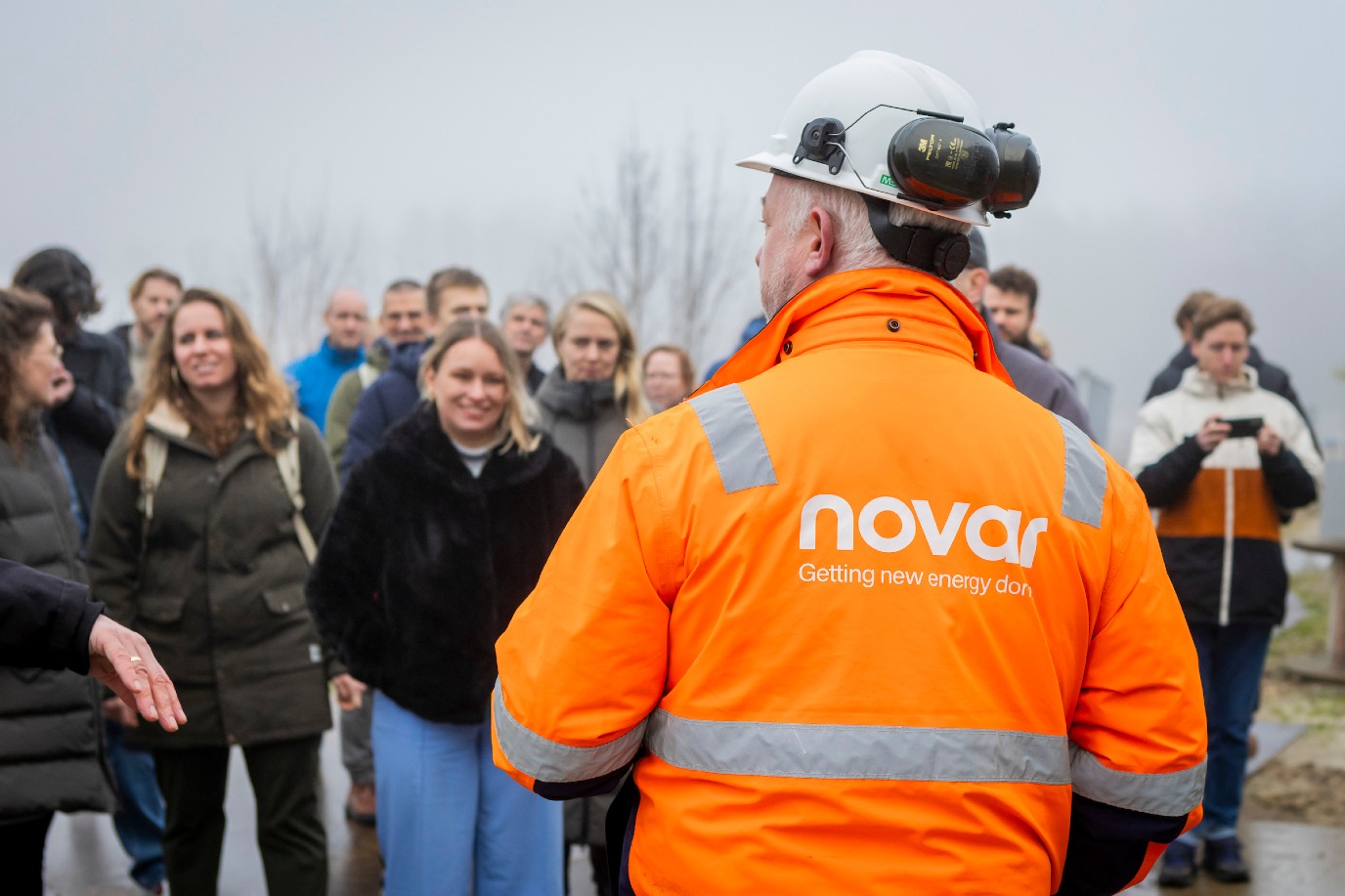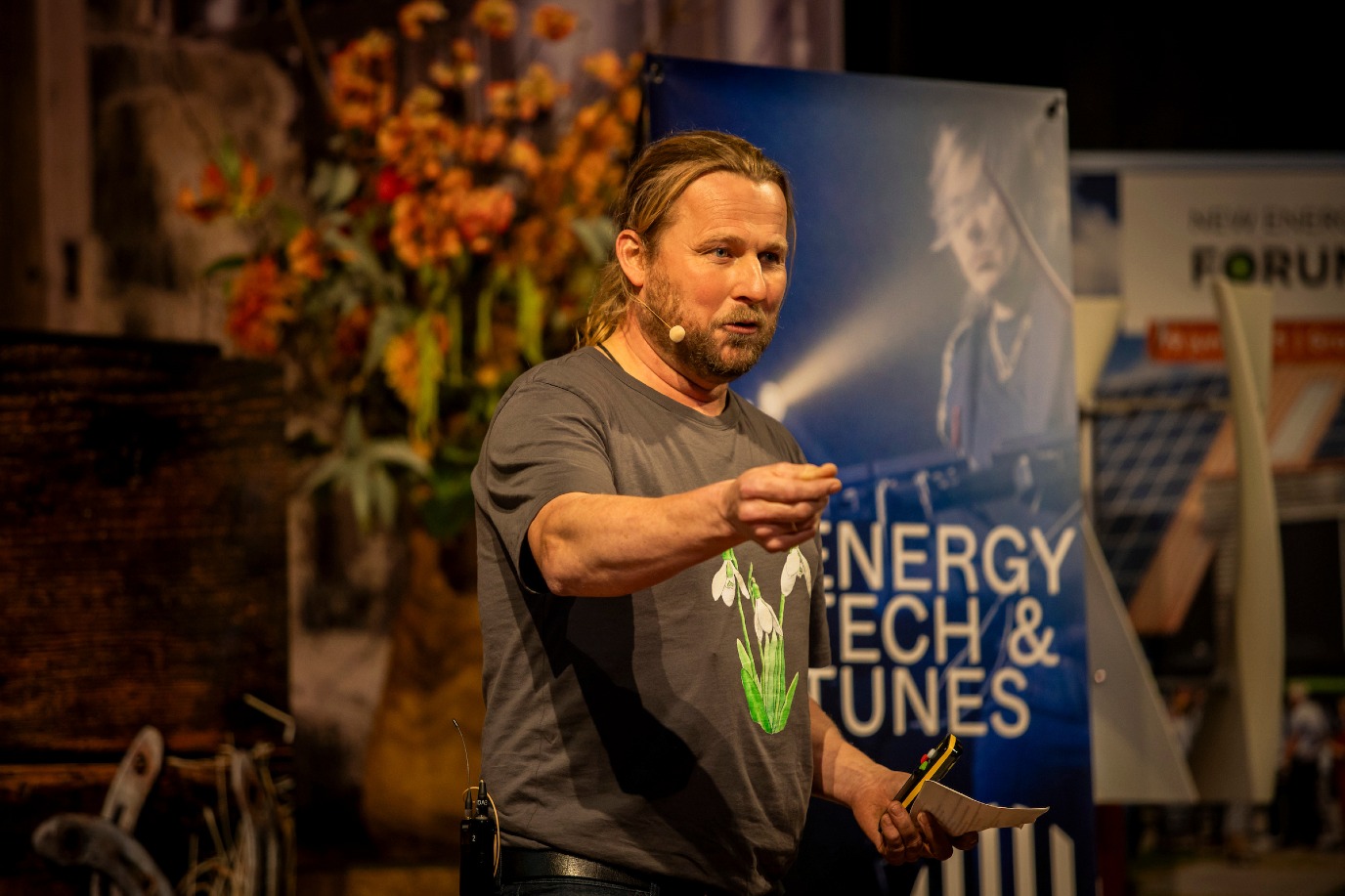A Recap of Energy, Tech & Tunes
Sustainability, innovation, and energy: these themes were central last week during Energy, Tech & Tunes. The program featured a visit to the largest solar thermal park in the Netherlands, a panel discussion with green entrepreneurs, and a preview of the economic agenda of Nij Begun. Here's a report on the first day of the event.
Solar parks are becoming an increasingly common sight in the Dutch landscape. But what about the ecology in these panel-filled areas? Raymond Klaassen, a researcher at the University of Groningen and an expert in field birds, gave an interesting talk on biodiversity in solar parks during the first day of Energy, Tech & Tunes.
Threat or Opportunity?
In collaboration with the province of Groningen and Novar, a developer of large-scale sustainable energy systems, the RUG researcher mapped the ecology of three large solar parks in the provinces of Groningen and Drenthe, and their impact on field birds. The three solar parks varied, for example, in vegetation management, the distance between solar panels, and the level of nature compensation.
Open-field birds (such as skylarks, "the panda of the field species") tend to avoid solar parks, Klaassen explained. Half-open field birds (like the yellowhammer), however, benefit from the parks, especially when the solar parks are equipped with tall, rough vegetation. Much depends on the area's management (how is it mowed or grazed) and the nature compensation measures around the park, concluded the researcher.
After Klaassen's talk, Wouter van Bolhuis (Groninger Energy Platform) introduced the nearby Solar Thermal Park Dorkwerd to the attendees. The park uses 24,000 solar collectors to capture the sun's heat, which heats water flowing along the collectors. This heat provides WarmteStad with hot water for 2,600 households in Groningen. After a short walk towards the park, the group received a detailed explanation of the technology behind the largest solar thermal project in the Netherlands.
Green Entrepreneurs
The visit to the solar park was followed by a panel discussion on entrepreneurship in the North. Four startups in the energy industry shared their innovations. The entrepreneurs were involved in a wide range of activities: from energy storage via hydropower and optimizing supply and demand on the energy grid, to green hydrogen and generating electricity from sound. The panelists shared their founding stories, personal motivations, and the challenges they face with their energy startups.
During the 'Barntalk' by ENTRANCE, entrepreneurship was also central. Jasper Helmantel spoke about his company Cruydt-Hoeck, a nursery for native seeds and wild plants. He described himself as an "idealistic realist." According to Helmantel, "most entrepreneurs are good" (inspired by the book Humankind: A Hopeful History by Rutger Bregman). He criticized the perception that companies are only interested in making money. While Helmantel acknowledged that earning a fair living is necessary, he wants his company to make the world a little better. In his case, it’s about restoring biodiversity in the Netherlands.
Economic Agenda
After Helmantel’s story, coordinator Jakob Klompien, in a video recording, outlined the economic agenda of Nij Begun. The Nij Begun ('New Beginning') package is the government’s response to the parliamentary inquiry into gas extraction. With the economic agenda, Klompien is set to invest over 3 billion euros in strengthening the economy of the earthquake-prone region. According to Klompien, "polluting industries" do not fit into the plans. He emphasized the importance of education, especially since the number of skilled technicians has lagged behind, which is essential for addressing the upcoming aging population in the North.
In the panel, Sieger Dijkstra (chairman of VNO-NCW) and Helmantel briefly discussed Klompien’s words. Dijkstra pointed out the importance of a level playing field for sustainable entrepreneurs. If green recycling companies in the North collapse because new plastic from China is cheaper, then we are not on the right track, he stressed. It requires regulation from The Hague and Brussels. Sustainability is essential in the long run, emphasized Helmantel. The green entrepreneur referred to the words of Albert Einstein: "If there are no bees, we will go extinct within four years," the famous scientist is said to have declared. That’s what it all comes down to, concluded Helmantel.
Energy, Tech & Tunes is an initiative by the Municipality of Groningen, ESNS, and the University of Groningen. More information about the program can be found here.




More news
-
15 September 2025
Successful visit to the UG by Rector of Institut Teknologi Bandung
